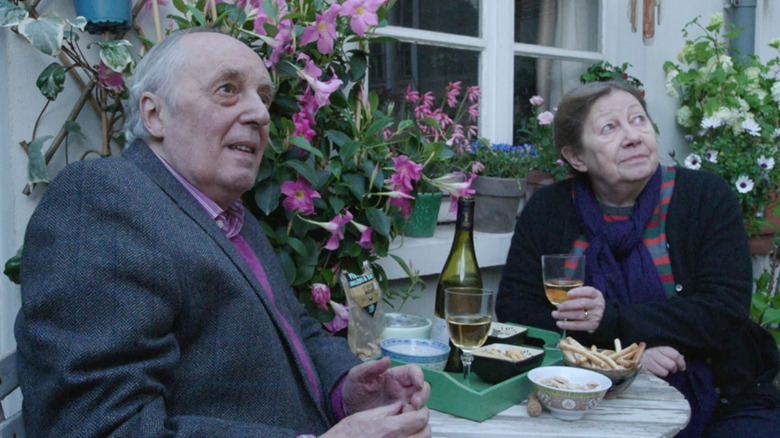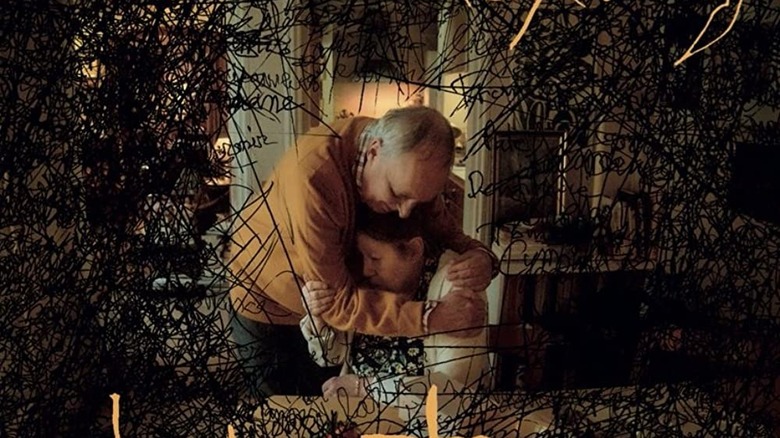Vortex Review: Gaspar Noe's Latest Is Softer But No Less Arresting Than His Usual, Making It One Of His Best
"Life is but a dream. A dream within a dream." But not all dreams are beautiful. Some reflect life's saddest and most heart-wrenching moments. Dreams are not always a refuge. And it is on that note that writer-director Gaspar Noé comes in. "Vortex," his new film, begins with that quote and continues throughout its runtime to highlight how dark dreams can become. His vision shows how real life and dreams merge and bend, and in the end, exist simultaneously in the expanse of our consciousnesses, which only exist for the short period of time we are on this earth. While the film's story is a dime-a-dozen, it is heightened by Noe's signature camera work and the strong performances of his trio of actors — and in this elevation, Noé exudes a mastery over the sensitive marriage of death, family, and erosion of relationships. In fact, it's overwhelmingly his most thoughtful work yet.
"Vortex" follows the last days of an old married couple. The mother, who is French, is afflicted with an illness that is taking her memory, while the father, who is Italian, suffers from a debilitating heart problem. They spend their days in tired opposition with one another, and before long, their son confronts them with the realities of their mortality. From there, their lives descend into the hazy daydream that is the end of being.
The story of an elderly couple's last days of life isn't necessarily groundbreaking as a framework for a film in general. But the way Noé visually handles the story is what sets it apart, despite his tactics being standard and signature for him. We've seen him employ the same techniques in all his past films, but Noé is making a decidedly different movie here. One could argue this one is softer than all the rest, and because of that softness, his stark approach to framing and his classic split-screen perspective shots are recontextualized in the eyes of the audience. His methods are perfectly paired with the subject matter of the filmmaker's usual fare — think his cruel and crushing films "Enter the Void" and "Climax," for example — but they find a new purpose in this quiet, contemplative movie. That said, those methods are at-home in this piece because there is, of course, a shared cruelness in this piece despite its muted approach. Above all, death is cruel to us at times, and nearly always to those we leave behind. There is a harshness in loss, and we have very little control over it, which is why Noé's methodology is a perfect fit. He is well-versed in forcing us to experience visual chaos that mimics a loss of control, and though this version of it is tampered down and laid bare, it's just as arresting.
The soft yet crushing world of Vortex
Noé's camera work exists in harmony with his actors' powerful performances, particularly Dario Argento, who has never had a leading role in a film before. His choices as the father are intrinsically devastating, and his performance, on the whole, is unexpectedly charged. Argento is known as a prolific horror director, with his claim to fame being the iconic 1977 giallo film "Suspiria" — so it feels good to see what Argento himself can do in front of the camera for a change. We already love his sense of filmmaking and craft, it's what has given him the career he has. But seeing him in this new light, especially so late in his vocation, gives weight to an already stirring and emotional performance. Françoise Lebrun gives an equally devastating representation of a woman with dementia who is doing her best to keep hold of any shred of normalcy before she is taken entirely by her affliction. She and Argento have a mastery of subtle, small moments in the film, and they all add up to one big, crushing reality: that the end will always come. Alex Lutz is also very effective on-screen as the couple's loving son Stéphane, who is trying his best to be there for his rapidly declining parents despite being wrapped up in his own problems. He comes at his part in the story with grace and quiet contemplation that mirrors his elders, yet maintains the innocence of a life yet to be lived.
These performances wouldn't be what they are without Noé's tight, strong script that focuses mainly on the idea of the dream world meshing with the real world as life comes to a close. His dialogue is either touching somehow on that concept, or it is startlingly true-to-life, dealing with the frank details of human decline. That dichotomy forces the audience to consider the parts of our own lives that feel like a dream in juxtaposition to the moments where we are forced to come down from the clouds. On both sides of the spectrum, Noé's dialogue gets to the heart of the subjects, cutting out the fat and focusing on the meat of their concepts. He isn't afraid to give us just enough — there isn't a ton of dialogue in this film overall, but the dialogue we do get is desperately emotional and gipping — and let us fill in the blanks through his actors and his approach to shooting.
Noé is no stranger to the harsh realities of life. The concept is perhaps his favorite thing to highlight in his work. In turn, he has developed a signature style through which to effectively deliver these tableaus to us. Now, through "Vortex," he has now proven that his framework for building stories around the brutal and cruel works just as well on the softer stories of life's most crushing moments.
/Film Rating: 8.4 out of 10
"Vortex" arrives in theaters in New York on April 29, 2022, and in Los Angeles on May 6, 2022.

